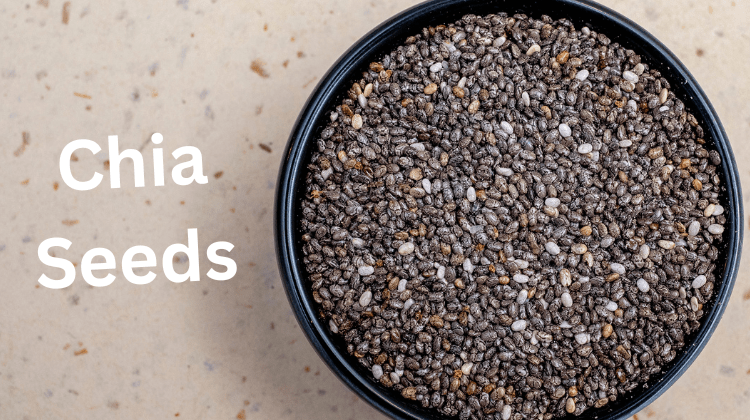Rich in essential nutrients like alpha-linolenic acid (ALA), fiber, and antioxidants, flax seeds offer a range of health benefits, particularly for the heart. As more people look for natural ways to support cardiovascular wellness, flax seeds are gaining attention for their potential to help manage cholesterol, reduce inflammation, and improve overall heart function. This article explores the science-backed ways in which flax seeds support heart health naturally.
As heart disease remains one of the leading causes of death worldwide, people are turning toward more natural and preventive approaches to protect their cardiovascular system. Among the growing list of heart-friendly foods, flax seeds stand out for their unique combination of omega-3 fatty acids, fiber, and antioxidants—nutrients known to play a vital role in maintaining a healthy heart.
In this article, we’ll explore how flax seeds support heart health naturally—from lowering bad cholesterol to reducing inflammation and improving blood pressure.
Nutritional Powerhouse: What’s Inside Flax Seeds?
Flax seeds are incredibly dense in nutrients that support overall health especially when it comes to the heart. Each spoonful is packed with essential compounds that work together to protect and strengthen your cardiovascular system. Here’s a closer look at the key nutrients that make flax seeds a true nutritional powerhouse:
1. Omega-3 Fatty Acids (ALA)
Flax seeds are one of the richest plant-based sources of alpha-linolenic acid (ALA)—a type of omega-3 fatty acid known for its heart-protective properties. ALA helps reduce inflammation in the body, a major contributor to heart disease. It also supports healthy blood vessels and may help lower the risk of high blood pressure, stroke, and irregular heart rhythms.
2. Fiber (Soluble and Insoluble)
Each serving of flax seeds delivers a good dose of dietary fiber, including both soluble and insoluble types.
Soluble fiber helps lower LDL (“bad”) cholesterol by binding to cholesterol particles in the digestive system and removing them from the body.
Insoluble fiber supports healthy digestion, but it also plays an indirect role in heart health by aiding weight management and controlling blood sugar levels—both important for cardiovascular wellness.
3. Lignans (Antioxidants)
Flax seeds are the richest known dietary source of lignans, plant compounds that have antioxidant and anti-inflammatory properties. Lignans may help reduce plaque buildup in arteries, improve blood vessel function, and lower oxidative stress—factors all linked to a reduced risk of heart disease. They also have mild estrogen-like effects that may support hormone balance, particularly in women.
4. Plant-Based Protein
Flax seeds offer a modest but valuable amount of plant-based protein, which is essential for maintaining overall health and supporting tissue repair. Diets higher in plant protein and lower in animal fats have been associated with a lower risk of heart disease, making flax seeds a heart-smart choice for vegetarians and omnivores alike.
3. Omega-3s and Cholesterol: The ALA Advantage
One of the standout nutrients in flax seeds is alpha-linolenic acid (ALA), a plant-based omega-3 fatty acid known for its powerful role in promoting heart health. While most people associate omega-3s with fish, flax seeds offer an excellent alternative—especially for those following a plant-based diet.
Reducing Inflammation Naturally
Chronic inflammation is one of the underlying factors in many heart-related conditions, including atherosclerosis (hardening of the arteries). ALA works by reducing inflammatory markers in the body, helping to protect the arteries from damage. By calming systemic inflammation, ALA creates a healthier environment for the cardiovascular system to function properly.
Balancing Cholesterol Levels
- ALA has been shown to help regulate cholesterol levels in a way that supports heart health:
- It lowers LDL (low-density lipoprotein), commonly known as “bad” cholesterol, which is linked to plaque buildup in arteries.
- It may also increase HDL (high-density lipoprotein), or “good” cholesterol, which helps remove excess cholesterol from the bloodstream.
- This cholesterol-balancing effect helps reduce the risk of clogged arteries and lowers the chances of heart attack or stroke over time.
What Research Says
Several studies have highlighted the cardiovascular benefits of ALA:
- A review published in the American Journal of Clinical Nutrition found that higher ALA intake was associated with a reduced risk of fatal heart disease.
- A meta‑analysis in Nutrition & Metabolism reported that consuming flaxseed daily led to significant improvements in LDL cholesterol levels and reduced inflammation.
- Another meta-analysis confirmed that flaxseed interventions consistently lowered total and LDL cholesterol, especially when using whole seeds.
- In a clinical trial, participants who consumed 30g/day of flaxseed for three months saw reductions in total cholesterol by ~7% and LDL-C by ~10%.
4. Fiber’s Role in Lowering Blood Pressure and Cholesterol
Flax seeds are an excellent source of dietary fiber, offering both soluble and insoluble fiber in every serving. While both types are beneficial for digestion, soluble fiber plays a particularly vital role in supporting heart health—especially by helping regulate cholesterol levels and blood pressure.
How Soluble Fiber Helps Manage Cholesterol
Soluble fiber forms a gel-like substance in the gut, which binds to LDL (bad) cholesterol and helps carry it out of the body before it can enter the bloodstream. This natural process contributes to a lower total and LDL cholesterol profile, ultimately reducing the risk of plaque buildup in the arteries.
According to the American Heart Association, increasing soluble fiber intake by just 5 to 10 grams per day can reduce LDL cholesterol by up to 5%. Given that a single tablespoon of flax seeds provides nearly 3 grams of fiber, incorporating them into your meals can significantly support cholesterol management.
Fiber and Heart Disease Risk
Multiple studies link higher fiber intake to a lower risk of cardiovascular events. In a large meta-analysis published in The Lancet, researchers found that individuals with high fiber intake experienced a 15–30% reduction in the incidence of heart disease, stroke, and type 2 diabetes compared to those with low fiber diets. These findings underscore how fiber isn’t just good for digestion—it’s also critical for long-term heart health.
Impact on Blood Pressure
Beyond its effect on cholesterol, fiber—especially the type found in flax seeds—may also contribute to lower blood pressure. A randomized controlled trial published in Hypertension found that participants who consumed 30 grams of ground flaxseed daily for six months experienced an average reduction of 10 mm Hg in systolic blood pressure and 7 mm Hg in diastolic pressure. These changes were especially significant in individuals with diagnosed hypertension.
The blood pressure-lowering effect of flaxseed is thought to stem from its combined nutritional benefits—particularly fiber, omega-3s, and lignans—which work together to:
- Improve vascular function
- Reduce systemic inflammation
- Enhance arterial flexibility and blood flow
These improvements support more stable blood pressure levels over time and further highlight flax seed’s role as a heart-friendly superfood.
5. Lignans and Antioxidants: Natural Heart Protectors
Flax seeds are rich in lignans—a type of plant compound with both antioxidant and phytoestrogen properties. These naturally occurring compounds contribute to heart health by reducing plaque buildup, controlling oxidative stress, and supporting hormonal balance.
Reducing Plaque Buildup in Arteries
Studies suggest that lignans such as secoisolariciresinol diglucoside (SDG) from flaxseeds may reduce plaque formation in the arteries. In animal studies, a flax lignan complex led to a 34% reduction in atherosclerosis, 20% lower total cholesterol, and 14% lower LDL cholesterol, while increasing HDL levels by 30% (study link).
Antioxidant Properties and Oxidative Stress Relief
Lignans function as potent antioxidants, protecting the cardiovascular system from oxidative stress by neutralizing free radicals and reducing LDL oxidation. The same study also showed a 58% reduction in oxidative stress markers like malondialdehyde (MDA) with flax lignan supplementation (research data).
Hormonal Balance and Indirect Heart Benefits
Once consumed, lignans are converted by gut bacteria into enterolignans (enterodiol and enterolactone), which have mild estrogen-like effects in the body. This can be especially beneficial for postmenopausal women, potentially lowering heart disease risk by supporting hormonal balance (OSU Linus Pauling Institute).
Human-Based Evidence
Although many studies focus on whole flaxseed, clinical data also supports improvements in cholesterol profiles and heart health from lignan-rich diets. A meta-analysis showed consistent reductions in LDL and total cholesterol, along with better HDL outcomes (meta-analysis).
6. Blood Pressure Regulation Benefits
Flax seeds have gained recognition not just for improving cholesterol levels, but also for their role in supporting healthy blood pressure. Several studies suggest that regular consumption of flaxseed may contribute to lower systolic and diastolic blood pressure, making them a natural and affordable option for cardiovascular support.
In a notable randomized controlled trial, participants who consumed flaxseed daily for six months experienced significant reductions in both systolic and diastolic blood pressure compared to those who did not. This study highlighted the potential of flaxseed to lower blood pressure in people with hypertension—even those already taking medication.
So, what’s behind these benefits?
The blood pressure-lowering effects of flaxseed are thought to be due to several mechanisms:
- Alpha-linolenic acid (ALA), the plant-based omega-3 in flaxseed, may improve blood vessel function and reduce inflammation.
- Lignans, known for their antioxidant and estrogen-modulating effects, may help relax blood vessels.
- Dietary fiber—particularly the soluble kind—can improve arterial flexibility and reduce vascular resistance, helping blood flow more smoothly.
8. Anti-Inflammatory Properties for Cardiovascular Protection
Chronic low-grade inflammation plays a key role in the development and progression of cardiovascular disease. It contributes to plaque buildup in arteries (atherosclerosis), damages blood vessel walls, and increases the risk of heart attacks and strokes.
Chronic Inflammation: The Silent Threat
When the body is exposed to harmful stimuli like poor diet, obesity, high blood sugar, or environmental toxins, it may trigger ongoing inflammation. Over time, this sustained response promotes arterial stiffness and plaque formation, leading to narrowing and hardening of blood vessels—key contributors to heart disease.
Flaxseed’s Anti-Inflammatory Power
Flaxseed is packed with bioactive compounds that counteract inflammation on multiple levels:
- Alpha-linolenic acid (ALA), a plant-based omega-3 fatty acid found in flaxseed, has been shown to reduce inflammatory markers like C-reactive protein (CRP) and interleukin-6 (IL-6).
- Lignans, natural polyphenols in flaxseed, act as antioxidants that neutralize free radicals and suppress pro-inflammatory gene expression.
- Flaxseed’s soluble fiber content also contributes by supporting gut health, which plays a critical role in regulating systemic inflammation through the gut-heart axis.
Cardiovascular Impact
By reducing systemic inflammation, flaxseed may:
- Lower the risk of atherosclerosis
- Improve blood vessel function
- Support overall heart health in individuals with hypertension, metabolic syndrome, or elevated cholesterol
9. Precautions and Considerations
While flax seeds offer many heart-healthy benefits, it’s important to consume them mindfully. Like any functional food, they may not be suitable for everyone.
Potential Side Effects of Overconsumption
Eating too much flaxseed—especially without adequate water—can lead to digestive discomfort, including bloating, gas, or constipation, due to its high fiber content. Excessive intake may also interfere with mineral absorption, particularly calcium, iron, and zinc, because of compounds like phytic acid.
Additionally, high doses of flaxseed (typically above 30 grams per day) may cause diarrhea or loose stools in some individuals.
Who Should Avoid Flax Seeds?
Certain individuals should be cautious or avoid flaxseed entirely:
People on blood thinners: Flaxseed contains omega-3 ALA, which may have mild blood-thinning effects. Those taking medications like warfarin or aspirin should consult their doctor before using flax regularly.
Individuals with hormone-sensitive conditions: Flaxseeds are rich in phytoestrogens (lignans), which may mimic estrogen in the body. While some research suggests benefits, those with breast, uterine, or ovarian cancers, or endometriosis, should seek medical advice before consuming flaxseed frequently.
Pregnant or breastfeeding women: While flaxseed may be safe in small amounts, its hormonal effects haven’t been extensively studied during pregnancy. Moderate use is generally considered acceptable, but consultation with a healthcare provider is advisable.
Importance of Hydration with High-Fiber Foods
Flaxseeds are packed with soluble and insoluble fiber, which absorb water and expand in your digestive tract. This can be beneficial for digestion and satiety—but only if you’re drinking enough fluids.
To prevent constipation or cramping:
Drink at least 8–10 glasses of water per day, especially if you’re new to high-fiber foods.
Introduce flaxseed gradually into your diet to allow your digestive system to adjust.
Conclusion
Flax seeds stand out as a powerful addition to a heart-healthy diet. Backed by numerous scientific studies, they offer a variety of cardiovascular benefits—from lowering LDL cholesterol and regulating blood pressure, to reducing arterial plaque, oxidative stress, and chronic inflammation. Their rich content of omega-3 fatty acids (ALA), lignans, antioxidants, and soluble fiber makes them a natural protector against heart disease.
Regular inclusion of flax seeds—especially in ground form—can support long-term cardiovascular health when combined with a balanced lifestyle. Whether sprinkled on salads, blended into smoothies, or added to baked goods, flax seeds are a simple and versatile way to nourish your heart.
Start small, stay consistent, and consult your healthcare provider if you have specific medical conditions. Embrace flax seeds as a natural ally in your journey toward better heart health.
FAQs (Google SERP Inspired)
Q1: Are flax seeds better than chia seeds for heart health?
Both flax seeds and chia seeds offer impressive heart benefits, but flax seeds have a slight edge due to their higher content of alpha-linolenic acid (ALA)—a plant-based omega-3 fatty acid linked to reduced inflammation and lower risk of heart disease. Additionally, flax seeds are richer in lignans, which provide antioxidant and cholesterol-lowering effects.
Q2: How much flaxseed should I eat daily for heart benefits?
A typical recommended dosage is 1 to 2 tablespoons (7–14 grams) of ground flaxseed daily. This amount has been associated with improvements in cholesterol levels, blood pressure, and inflammation markers. Always start with a small amount and increase gradually, ensuring adequate water intake to support digestion.
Q3: Can flax seeds lower blood pressure quickly?
Flax seeds are not a quick-fix, but regular consumption has been shown to significantly lower both systolic and diastolic blood pressure over several weeks or months. In one study, participants who consumed flaxseed daily saw a noticeable reduction in blood pressure after 6 months. Consistency is key for results.
Q4: Do flax seeds help prevent heart attacks?
Yes, flax seeds contribute to heart attack prevention by addressing multiple risk factors: they help lower bad cholesterol (LDL), reduce inflammation, improve arterial function, and support healthy blood pressure. While not a standalone solution, they are a valuable part of a heart-protective lifestyle.
Q5: Is flaxseed oil equally effective for heart health?
Flaxseed oil is rich in ALA and offers some heart benefits, but it lacks the fiber and lignans found in whole or ground flax seeds. For comprehensive heart protection—including cholesterol management and digestive benefits—ground flax seeds are the better option. Flaxseed oil, however, can be used as a supplement for omega-3 intake.



